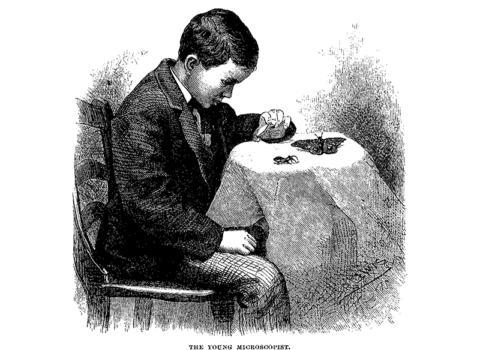Fair-weather Progressive
"Hillary Clinton wasn’t really a progressive, or even a liberal Democrat, until Bernie Sanders decided to run for president."
By now it’s clear that Bernie Sanders is never really going to attack Hillary Clinton—at least not with the kind of aggressive language that many of his supporters would like to see him use. For whatever reason—tactical, moral, or just ingrained good manners—Sanders has chosen the high ground of policy and argument over the hardline style favored by political consultants.
The only time I’ve noticed Sanders angry enough to hit back decisively at Clinton’s sniping—when she compared him with Republican critics of President Barack Obama—he was characteristically polite: “Madame Secretary,” he said, “that is a low blow.”
Yet Clinton’s misleading claims about herself—particularly her pretensions to being a “progressive” Democrat—beg for a tougher response, no matter how much of a gentleman Sanders wishes to appear. Last week’s Town Hall in Las Vegas was typical. After expressing apparent wonderment that Sanders would criticize her husband or Obama, she declared, “Maybe it’s that Senator Sanders wasn’t really a Democrat until he decided to run for office.”
The remark sounded clever, given Sanders’s claim to being a “socialist” independent. But maybe Hillary Clinton wasn’t really a progressive, or even a liberal Democrat, until Bernie Sanders decided to run for president.
Hillary and Bill Clinton are famously a political couple, an “entry” as it’s known in the vernacular. Their journey from supporters of the antiwar Senators Eugene McCarthy and George McGovern to friends of Wall Street grandees like Roger Altman and Steven Rattner is well documented. Nevertheless, Bill Clinton still does a pretty good impersonation of a progressive—as in his eulogy at Eugene McCarthy’s memorial service. So does Hillary Clinton. But it all rings hollow, since the Clintons long ago accommodated themselves to the money powers rather than fighting them. Scholars of the Clinton years in Arkansas can argue over what the young Governor Clinton was trying to accomplish in a southern state not known for liberal values. But Hillary’s willingness to serve for six years on the board of Walmart while her husband was governor is certainly evidence of a couple intent on advertising its openness to corporate and conservative values.
Once in the White House, the Clintons had a choice of how to launch their new administration. To be fair, Hillary wanted to address health care first, but Bill insisted on NAFTA. Whatever one may think of free trade as a theory, the way the Clintons practiced it has led to a huge industrial dislocation: factory closures all over the country and hundreds of thousands of jobs—Obama claimed “a million”—transferred to cheap labor Mexico.
NAFTA was the beginning of the end for organized labor in the United States, but with the next Clinton trade initiative, Permanent Normal Trade Relations with China, passed in 2000, U.S. companies raced to “communist” China as if it were the California gold rush. This record does not exactly square with the story of a Clinton couple holding aloft the mantle of Franklin and Eleanor Roosevelt. I have reported extensively on NAFTA and PNTR and am unaware of any public statement Hillary Clinton ever made against her husband’s trade and labor policies.
The Clintons’ retreat from the principles epitomized by the Roosevelts continued with the repeal of the Glass-Steagall Act, a regulatory hallmark of the New Deal aimed at discouraging the kind of bank speculation that brought on the crash of 2008. The administration’s 1996 “welfare reform” bill deprived millions of poor people, most of them minority women, of much-needed government subsidies and was praised by the unprogressive Newt Gingrich as “a major, major achievement.” I don’t find Hillary protesting those “achievements.”
And then there’s universal health care, abandoned as a goal during the Clinton Administration, and which Hillary now says is unrealistic. It might very well be if you’ve taken $495,807 in campaign donations from the insurance business and $1,135,218 from pharmaceutical interests.
But you say that Hillary, as a feminist, has a right to be judged on her own record, not her husband’s. What Sanders can’t say, because he is a gentleman, is that Hillary Clinton’s career as a politician—unlike, say, Elizabeth Warren’s—does not exist without her husband, either as Senator, or as Secretary of State, or as a possible President. It’s not easy getting on the ballot, whether you grew up left-wing in Brooklyn, like Bernie Sanders, or Republican in Illinois, like Hillary Clinton.



